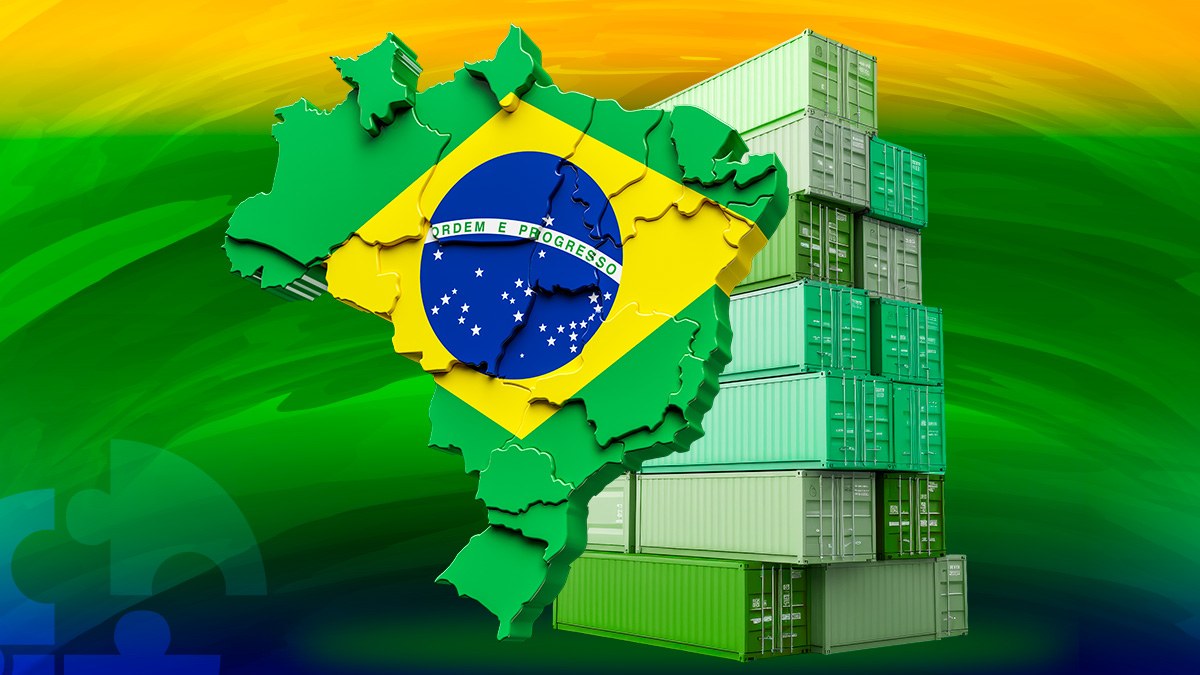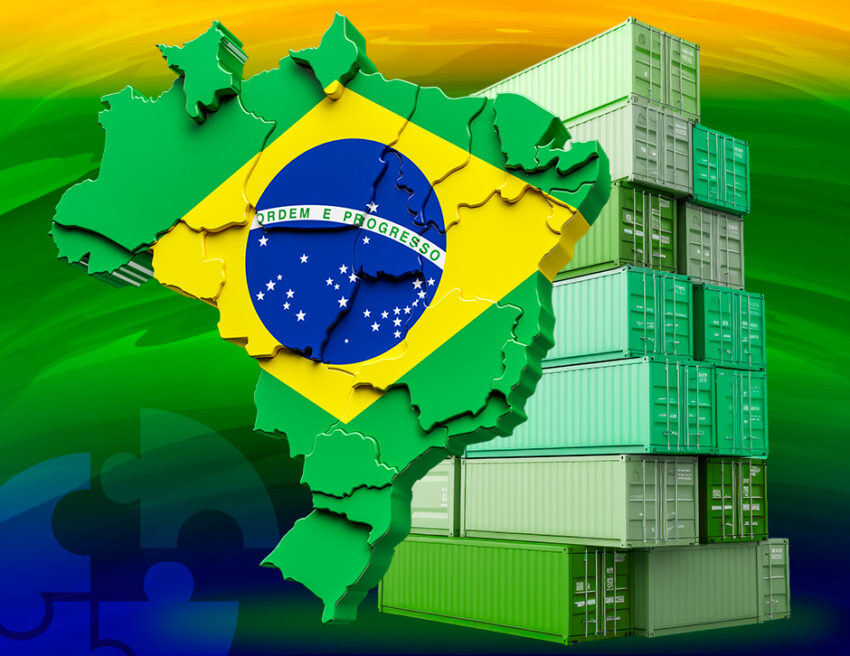Being a vast continental nation and an emerging economic force, Brazil has committed significant investments in the expansion of its transportation and logistics infrastructures. The country’s logistics matrix, shaped by industrialization policies in the sixties, heavily relies on highways. During that era, Brazil transitioned from railways to highways. However, the challenges of maintaining, expanding, and the associated costs of highway transportation have prompted the nation to reevaluate its logistics matrix. There is a concerted effort to explore more cost-efficient and sustainable transportation alternatives and independent freight forwarders in the country stand to gain a lot from the ongoing investments in logistical infrastructure. In today’s post, we are going to discuss the freight and logistics market in the largest nation in South America and provide a few tips for independent freight forwarders based in Brazil to expand their business.
The freight and logistics market in Brazil and how independent freight forwarders can make the most of it
The logistics sector in Brazil: Market trends
According to a report by Mordor Intelligence, the Brazil Freight and Logistics Market is anticipated to attain a size of USD 104.79 billion in 2024, with projections indicating a growth trajectory to reach USD 129.34 billion by 2029. This forecast reflects a Compound Annual Growth Rate (CAGR) of 4.30% during the specified forecast period from 2024 to 2029.
The statistics paint a revealing picture – approximately 12% of the country’s GDP is allocated to logistics costs, a figure 4% higher than that observed in the United States. Simply put, this inefficiency is rooted in a lack of robust transportation infrastructure, underscoring the need for strategic interventions.
Brazilian government embarked on an ambitious privatization initiative in 2022. Through a series of concession auctions and regulatory reforms, the goal was to attract financing that could help address Latin America’s most significant infrastructure funding gap. Moreover, by the end of the year, the federal government aimed to secure nearly BRL 250 billion (USD 47.27 billion) in logistics investment.

Trucking as the primary mode of transportation and related challenges
In the intricate web of Brazil’s transportation landscape, a diverse array of sectors converges, encompassing cargo and passenger rail, logistical infrastructure, highways, ports, public transportation, urban mobility, and intelligent transportation systems. While this mosaic offers comprehensive coverage, the reliance on trucks as the primary cargo movers has led to a unique set of challenges, making logistics comparatively more expensive in Brazil.
E-commerce is boosting the Brazilian logistics sector
The dynamics of the logistics landscape were further shaped by the surge in online shopping during the pandemic, driving a rapid increase in the occupancy rates of available logistics warehouses. This trend still persists and the high demand for online market goods has prompted the independent freight forwarders in the country to boost their operations.
The Ministry of Infrastructure (MInfra) played a pivotal role in these transformative efforts. Virtual roadshows were conducted to engage foreign audiences and showcase concession opportunities in railways, airports, highways, and ports. The year 2022 witnessed significant government investments, with BRL 5.28 billion (USD 998.39 million) allocated to three strategic blocks: North Two (7 airports), Rio de Janeiro – Minas Gerais (7 airports), and Sao Paulo – Mato Grosso do Sul (7 airports).
How to boost your business as an independent freight forwarder in Brazil
The landscape of the Brazilian freight and logistics market is characterized by fragmentation, with the top five companies collectively holding a market share of 2.38%. Among the key players in this dynamic market are FedEx, JSL SA, Deutsche Post DHL Group, Braspress Transportes Urgentes, and Kuehne + Nagel. However, the small and independent freight forwarders in Brazil are also trying to make the best of the booming Brazilian logistics industry. It has become abundantly clear that the logistics companies in Brazil need to work on several factors and optimize several processes so as to successfully compete with the multinationals. Here are a few things they can do to boost their enterprises:
Join a reliable logistics network
Small and mid-sized freight forwarders in Brazil can strategically expand their horizons by joining a renowned freight forwarding network. Membership in a network like The Cooperative Logistics Network presents an opportunity to establish a significant international presence, strengthen brand recognition, forge valuable partnerships, and attract new business opportunities. As a Cooperative member, the following advantages await:
-
Over 352 reliable logistics partners across 150 countries
You will get to partner with more than 352 vetted freight forwarders across 130 countries who are known for their expertise, experience and credibility. In other words, joining an international logistics network like The Cooperative, will allow independent freight forwarders to expand their area of operation and become truly global.
-
Receive inward businesses from all corners of the world
Within the Cooperative Logistics Network, every member plays a crucial role by sharing a portion of their shipments with other members. This cooperative effort is designed to guarantee that each member receives new projects and valuable sales leads from the expansive network. Despite this commitment, members retain the flexibility to continue working with their established logistics partners outside of the network as needed. This balance fosters a collaborative environment for mutual growth and success.
-
Become a digital freight forwarders
In order to fully compete with the multinationals, the first thing that independent freight forwarders need to do is digitize their operations. The Cooperative Logistics Network facilitates its members to function as digital freight forwarders by offering an array of complimentary online tools. Notably, the exclusive member tool, FreightViewer, provides a digital infrastructure enabling quick quote generation within seconds. This program that enables forwarders to send instant online door-to-door quotations, serves as a strategic advantage for network agents, allowing them to stay one step ahead of their competitors in the dynamic logistics landscape.
In summary, for independent freight forwarders in Brazil to thrive in today’s fiercely competitive market, embracing digitization, establishing an international presence, and enhancing workforce skills are imperative. A pivotal initial move towards achieving these objectives is to join a reputed logistics network. This strategic step opens doors to a multitude of opportunities, enabling forwarders to navigate the challenges of the modern logistics landscape with resilience and innovation.


